Are you curious about how to ensure top-notch service quality from your vendors? In today's competitive market, having a reliable vendor service quality assurance guarantee can make all the difference for your business. It not only helps foster trust but also enhances collaboration, leading to better outcomes for both parties involved. Join me as we dive deeper into the importance of optimizing vendor relationships and explore actionable tips to ensure excellence in service delivery.
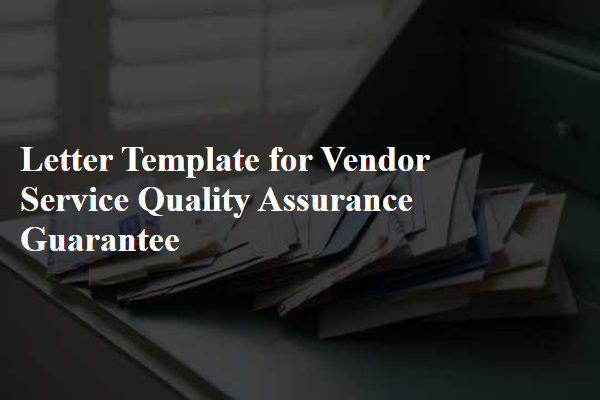
Clear Definition of Quality Standards
A clear definition of quality standards ensures consistency in service delivery in vendor relationships. For instance, in a food service contract, quality standards may specify temperature requirements for food storage (below 5 degrees Celsius) and guidelines for food presentation that meet local health regulations (such as the stringent ISO 22000 standards). In another context, a tech support vendor might be held to response times, ensuring issues are acknowledged within 30 minutes and resolved within 24 hours, based on industry benchmarks. Establishing metrics such as customer satisfaction scores (targeting 90% satisfaction based on client feedback) further defines expected service outcomes. Adhering to these standards requires continuous monitoring and regular audits to guarantee vendor compliance and maintain high service quality.
Measurement and Monitoring Processes
Effective measurement and monitoring processes are crucial for ensuring the service quality delivered by vendors, such as IT service providers or logistics companies. Key performance indicators (KPIs) should be established to evaluate aspects such as on-time delivery rates (targeting 98% compliance) and customer satisfaction scores (aiming for a minimum of 85% positive feedback). Regular audits, quarterly assessments, and real-time data analytics facilitate ongoing evaluation of vendor performance. Tools such as Service Level Agreements (SLAs) can help track adherence to agreed-upon service standards, ensuring accountability. Feedback loops, including client surveys and monthly performance reviews, foster continuous improvement, enhancing the overall relationship with vendors.
Specific Responsibilities and Accountability Clauses
Vendor service quality assurance guarantees outline specific responsibilities and accountability clauses that ensure compliance and performance standards. These agreements often detail expectations regarding service delivery timelines (typically within 48 hours for urgent requests), quality benchmarks (such as achieving a minimum of 95% customer satisfaction ratings), and regular performance evaluations (quarterly assessments conducted by third-party auditors). Additionally, penalties for service failures (financial deductions based on severity) and corrective action plans (timelines for implementing changes) are frequently included. Clear definitions of roles and responsibilities (who manages what aspect of the service) are essential to ensure accountability. Proper documentation for all service interactions (systematic recording of communications and resolutions) can further enhance transparency and trust between the vendor and the client.
Resolution and Remediation Procedures
Establishing effective resolution and remediation procedures is crucial for maintaining high service quality standards in vendor agreements. A clear outline of steps ensures prompt addressing of issues when service quality falls short. Initial identification involves gathering service performance data, utilizing metrics such as response times (ideally within 24 hours) and customer satisfaction scores (targeting above 85% satisfaction). The next phase entails communicating problems directly with the vendor, emphasizing accountability. Following a formal escalation process may be necessary if issues persist, potentially engaging higher management levels for oversight. Implementing corrective actions to resolve identified service failures should be documented meticulously, providing a timeline for resolution (typically within 7-14 business days). Continuous monitoring of service performance post-remediation ensures that quality standards are reestablished and maintained, fostering a culture of improvement and reliability in vendor relationships. Additionally, periodic reviews (quarterly or biannually) facilitate discussion of service quality trends and potential areas for enhancement, promoting a proactive partnership.
Contact Information for Further Support
A robust service quality assurance guarantee is essential for vendors aiming to maintain high standards in customer satisfaction. For clients needing assistance or further inquiries regarding service quality, the designated contact information is critical. Typically, a dedicated support team is available through various channels, such as a toll-free hotline operational 24/7, an email address monitored for prompt responses, or a live chat feature on the vendor's website (including real-time assistance during business hours). Providing a detailed contact list ensures seamless communication, enhances transparency, and allows for addressing any issues or feedback efficiently, ultimately promoting trust between vendors and their clients.

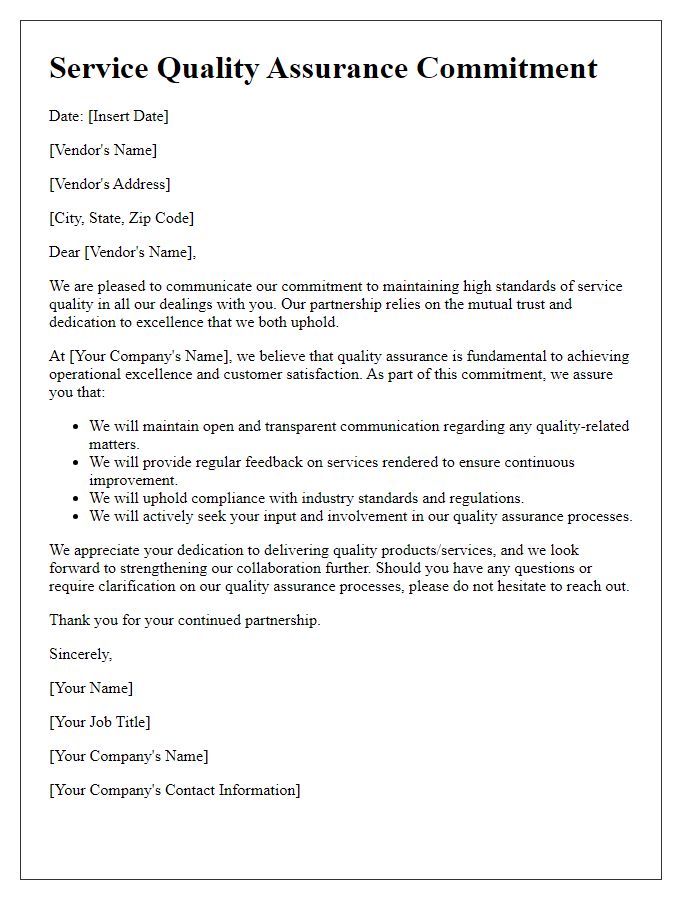
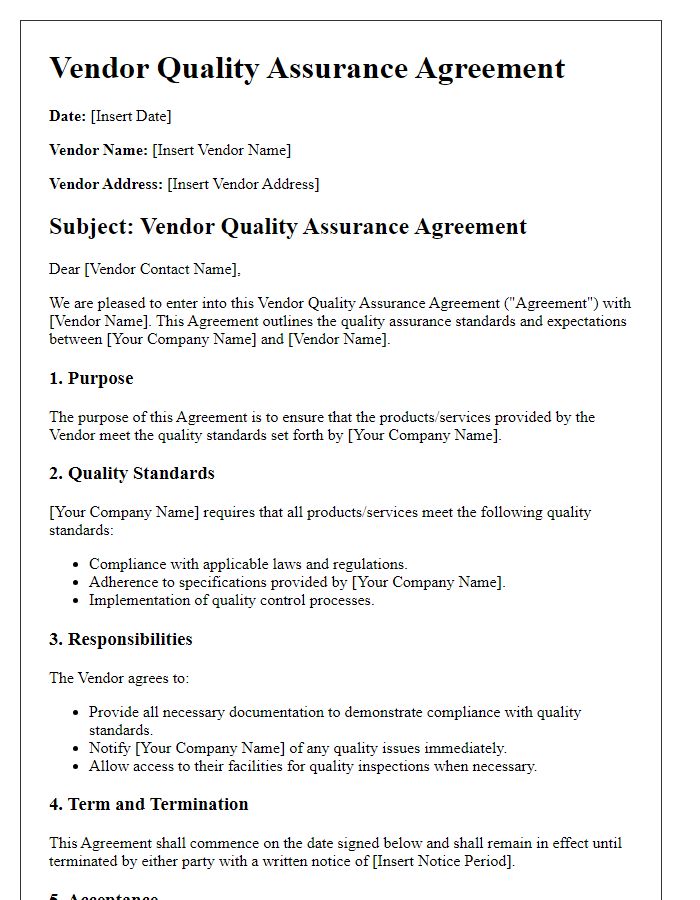
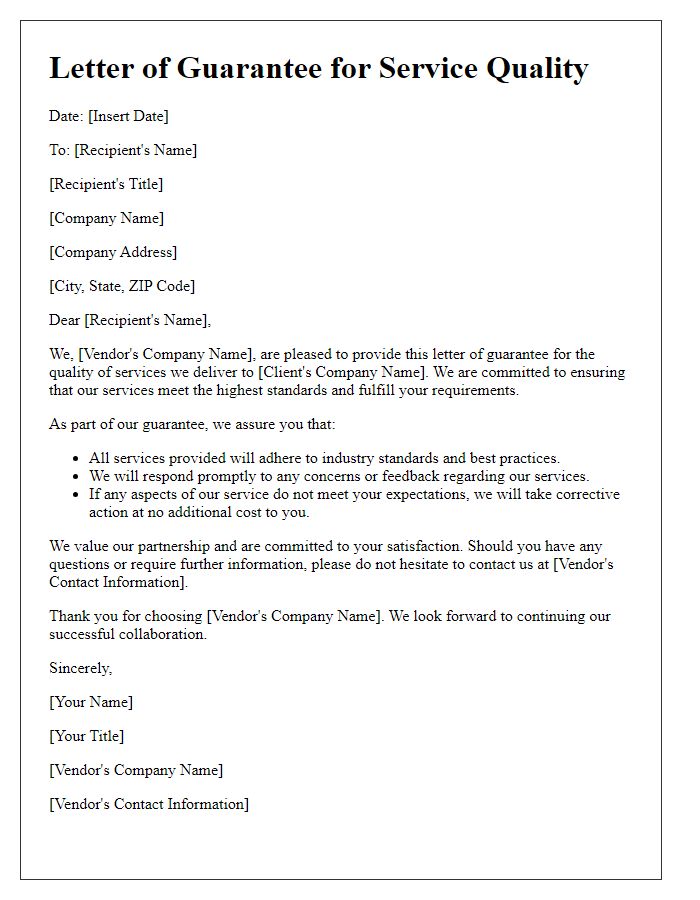
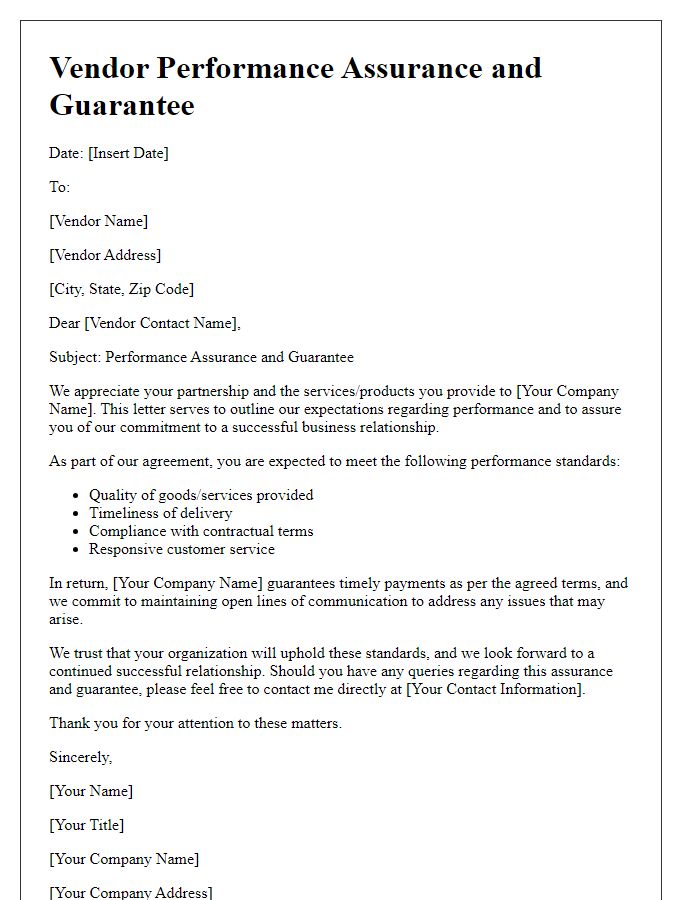
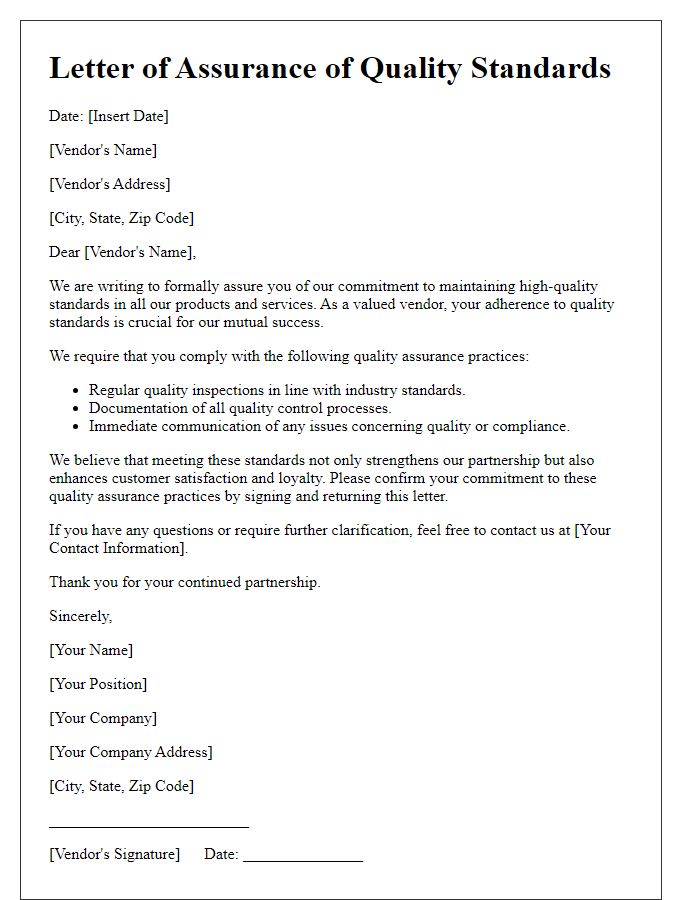
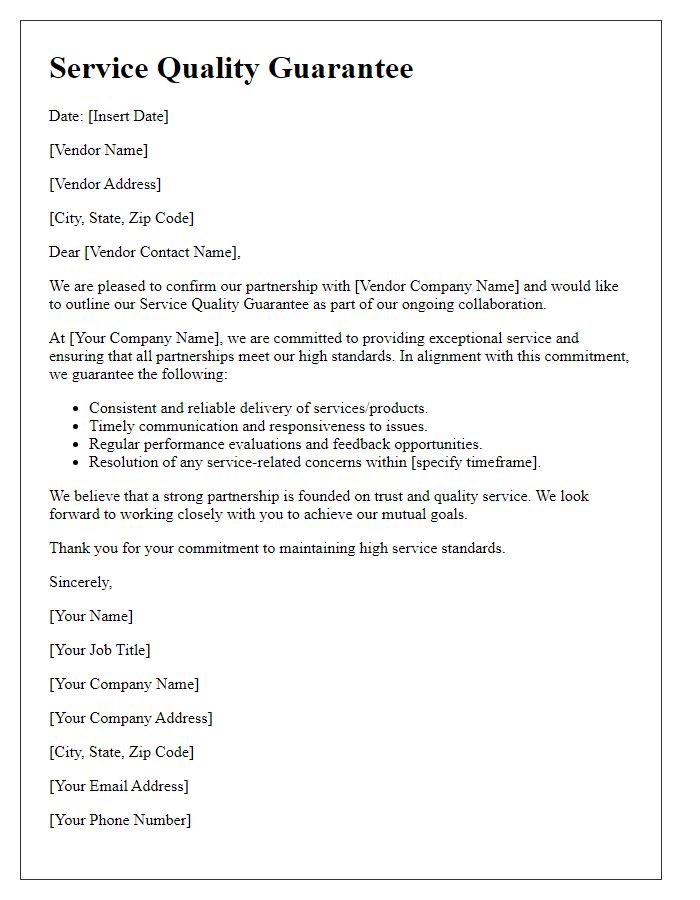
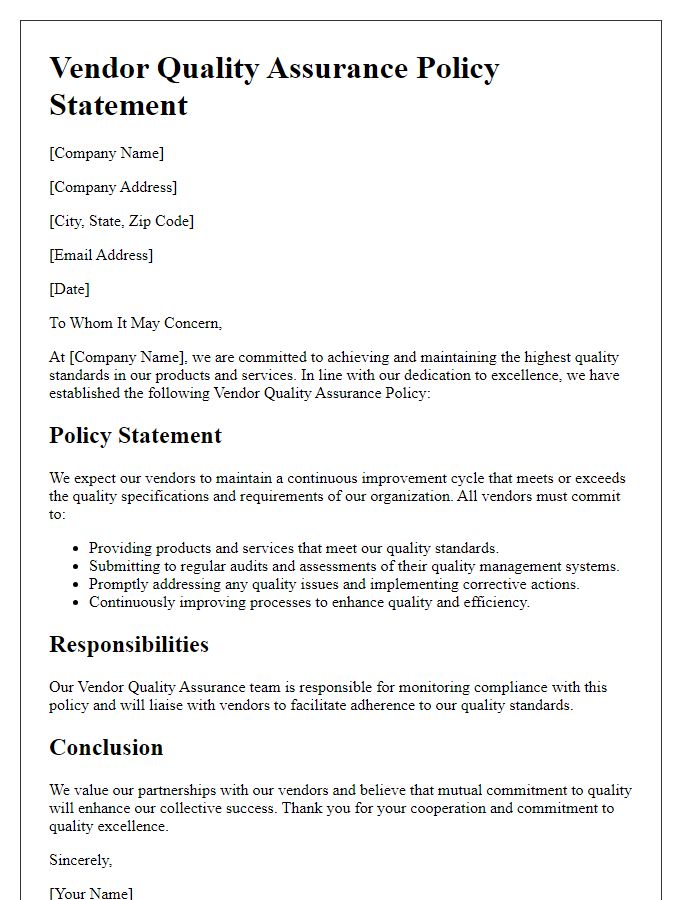
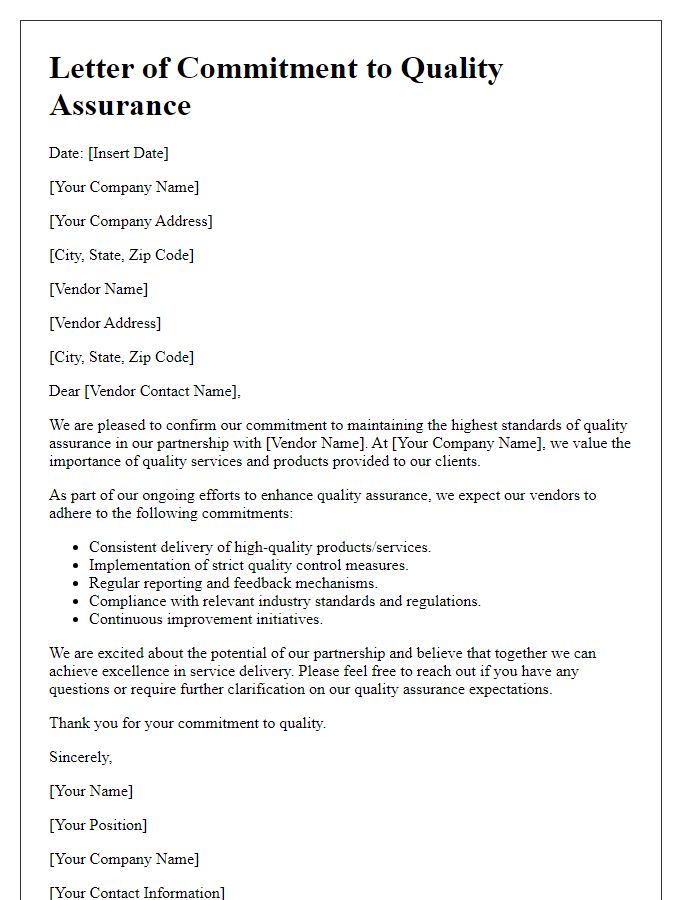
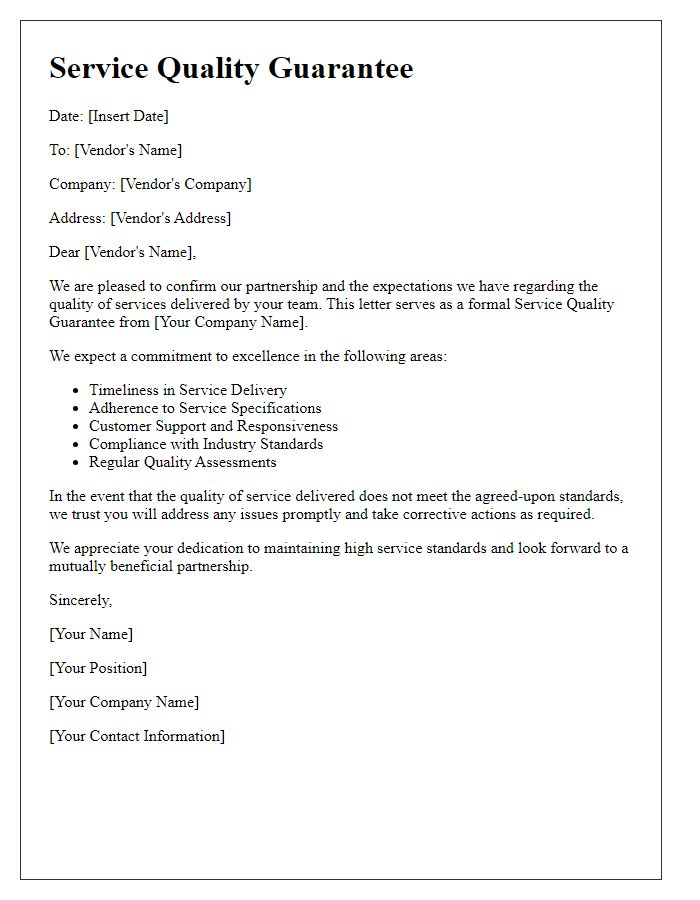
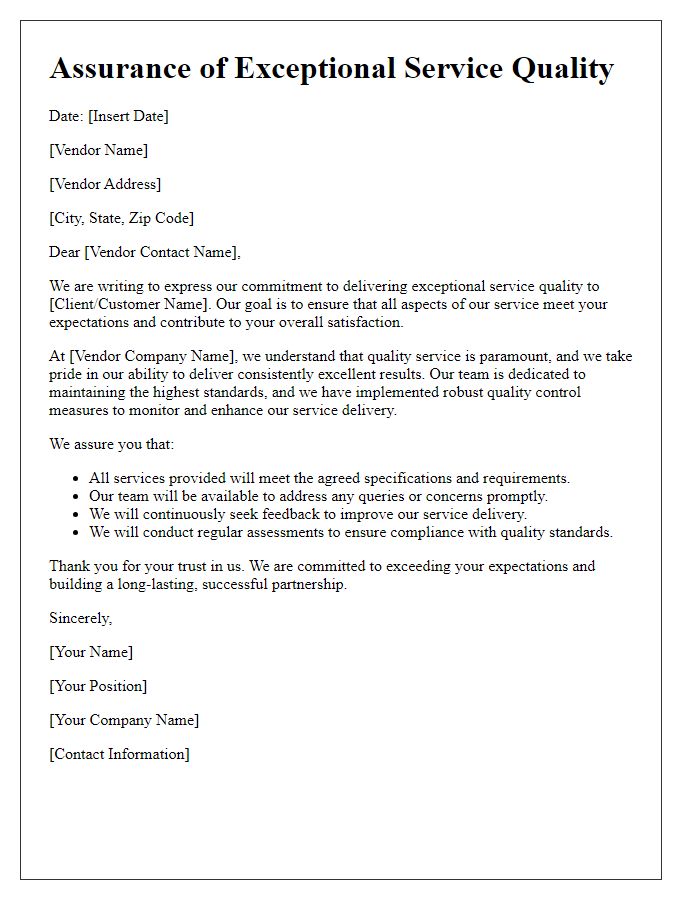

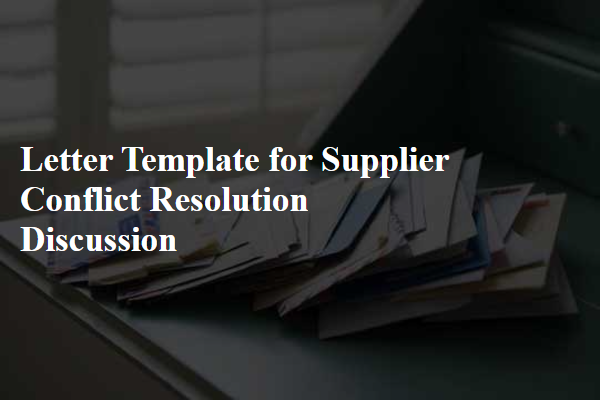
Comments